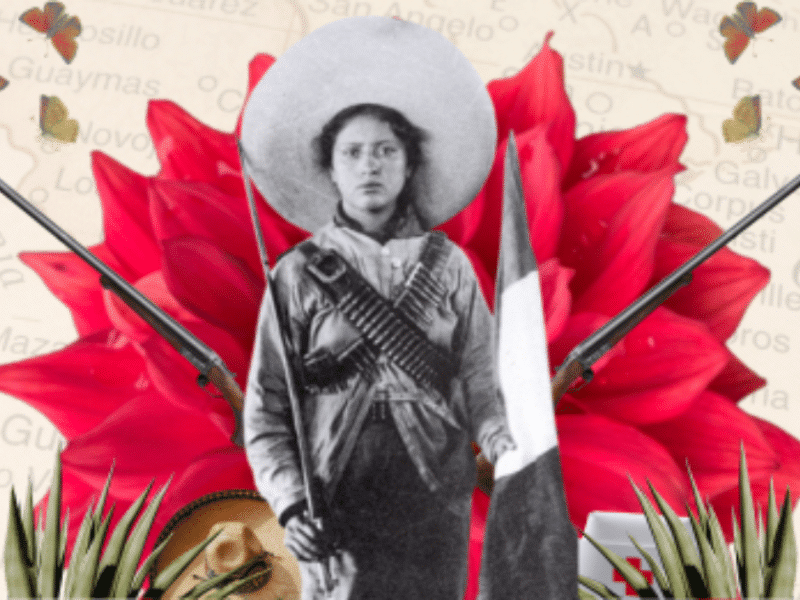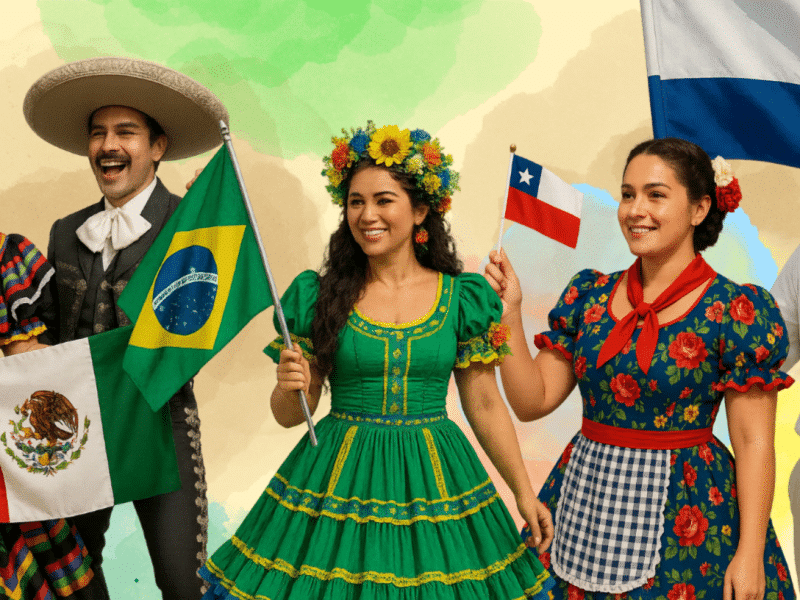The Lost History of the Adelitas of the Mexican Revolution
You may be familiar with the famous “Adelitas”, known as the women who fought alongside men in the Mexican Revolution. But did you know there is a real woman behind this name? Learn about the legacy of Adela Velarde Pérez.

You may be familiar with the famous “Adelitas,” known as the women who fought alongside men in the Mexican Revolution. But did you know there is a real woman behind this name?
Her name was Adela Velarde Pérez, born on September 8, 1900, in Chihuahua, México. She was said to be friendly, bold, brave, and smart, and at just 13 years old, she became part of “La Cruz Blanca,” where she learned medical skills against her father’s wishes. Even without the support of her father, the young Adela ignored his opposition and left to pursue her desire to become a nurse.
When she turned 15 years old, Adela joined the military and became a nurse on the front lines. There, alongside other women, her responsibility was to care for those wounded in action and to engage in combat when the men needed help. These women were known as the “soldaderas”. As her story came to light, the women previously referred to as “soldaderas” would go on to be nicknamed “Adelitas.”
Throughout her service during the Mexican Revolution, the real Adela had the romantic attention of the soldiers, but she repeatedly turned down their advances and focused on the mission at hand.
It wasn’t until years later that she developed a relationship with Antonio Gil, with whom she’d have a child. Unfortunately, she lost her partner during a battle of the Mexican Revolution, and their child died during combat in World War II. Even after suffering these tragic losses, she remained strong and resilient.
Adela would go on to fight battles in Zacatecas, Chihuahua, Morelos, and Mexico City. Though her contributions to the Mexican Revolution were great in number, her story was forgotten, and her legacy lost in time (until now, that is). After the Revolution, she moved to Mexico City, where she worked as a typist.
Twenty years after the Revolution, Adela was recognized as a veteran, but it wasn’t until sixty years after the Revolution that she would formally receive recognition and a pension for her service. At age 65, she met and married Coronel Alfredo Villegas whom she’d share the rest of her days with. Adela Velarde Pérez died in 1971 and was laid to rest in San Felipe Cemetery in Del Rio, Texas.

Long after the revolution, “Adelitas” were depicted as hyper-sexualized versions of the women who fought in the revolution.

After the conflict, these veterans returned home to fulfill societal norms, where their stories and contributions were slowly forgotten. The colorful posters of beautiful women with braids and lipstick, their gorgeous hair trailing down their arms with beautiful smiles, are far from reality.
These women gave their blood, sweat, and tears for their country. They were on battlefields alongside men and held multiple roles contributing to the cause. They dressed to be ready for anything, from cooking to aiding on the battlefield. Throughout Mexican history, women have held key roles in medicine, as teachers, combatants, and leaders during conflicts that have contributed to the country’s construction. Their resiliency and fighting spirit lives on as the country’s flag flies high.
This story was originally published on Cadena Collective as part of their resilient women photography series. The series served to honor resilient women by recreating images of them and highlighting their stories.






